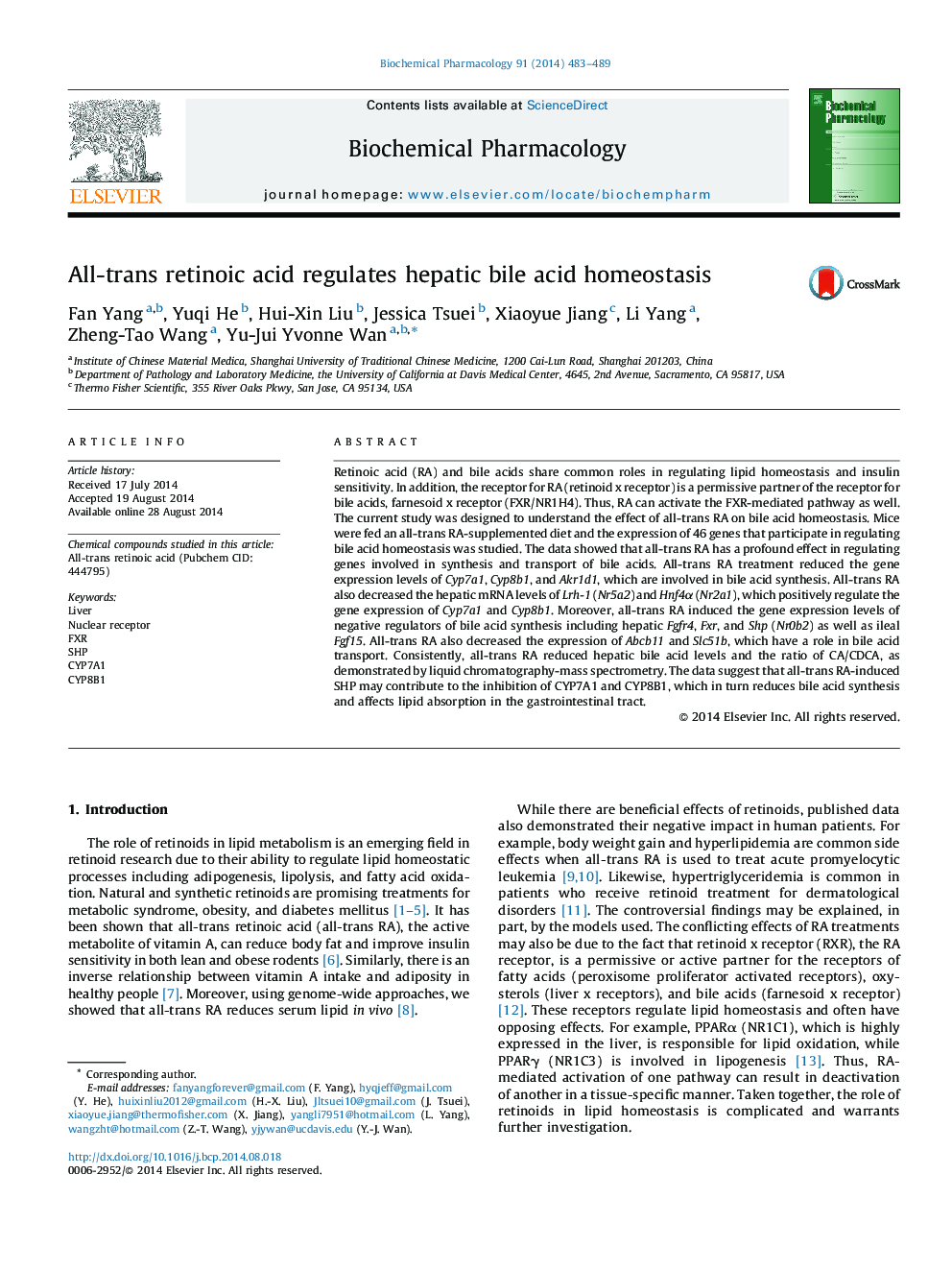| Article ID | Journal | Published Year | Pages | File Type |
|---|---|---|---|---|
| 2512176 | Biochemical Pharmacology | 2014 | 7 Pages |
Retinoic acid (RA) and bile acids share common roles in regulating lipid homeostasis and insulin sensitivity. In addition, the receptor for RA (retinoid x receptor) is a permissive partner of the receptor for bile acids, farnesoid x receptor (FXR/NR1H4). Thus, RA can activate the FXR-mediated pathway as well. The current study was designed to understand the effect of all-trans RA on bile acid homeostasis. Mice were fed an all-trans RA-supplemented diet and the expression of 46 genes that participate in regulating bile acid homeostasis was studied. The data showed that all-trans RA has a profound effect in regulating genes involved in synthesis and transport of bile acids. All-trans RA treatment reduced the gene expression levels of Cyp7a1, Cyp8b1, and Akr1d1, which are involved in bile acid synthesis. All-trans RA also decreased the hepatic mRNA levels of Lrh-1 (Nr5a2) and Hnf4α (Nr2a1), which positively regulate the gene expression of Cyp7a1 and Cyp8b1. Moreover, all-trans RA induced the gene expression levels of negative regulators of bile acid synthesis including hepatic Fgfr4, Fxr, and Shp (Nr0b2) as well as ileal Fgf15. All-trans RA also decreased the expression of Abcb11 and Slc51b, which have a role in bile acid transport. Consistently, all-trans RA reduced hepatic bile acid levels and the ratio of CA/CDCA, as demonstrated by liquid chromatography-mass spectrometry. The data suggest that all-trans RA-induced SHP may contribute to the inhibition of CYP7A1 and CYP8B1, which in turn reduces bile acid synthesis and affects lipid absorption in the gastrointestinal tract.
Graphical abstractFigure optionsDownload full-size imageDownload as PowerPoint slide
